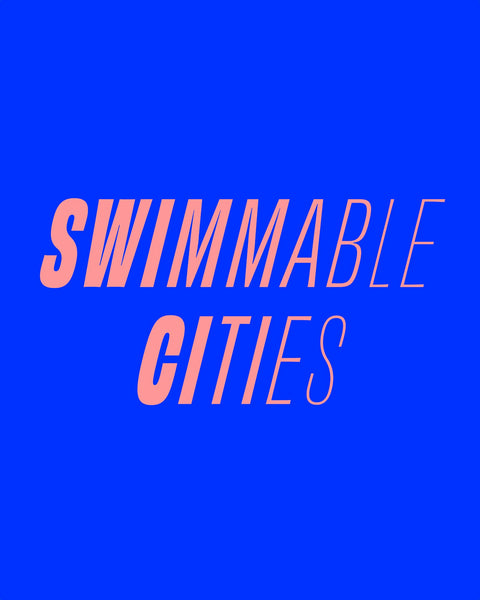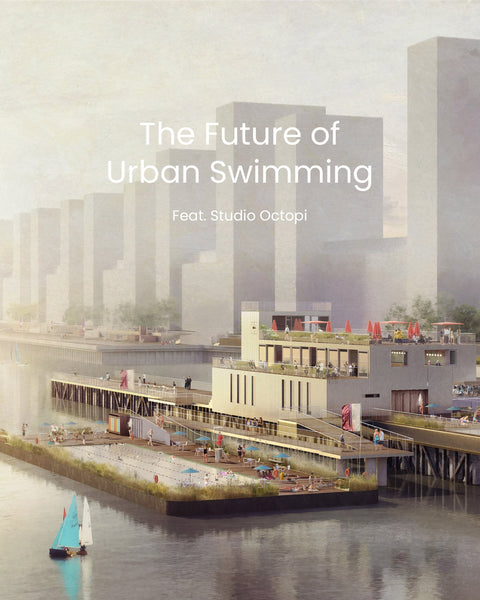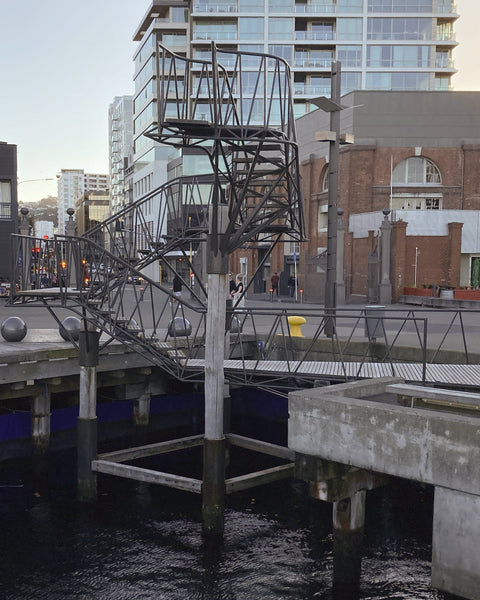
Pond Copenhagen is rooted in the emerging urban dipping culture forming in progressive cities around the globe. We believe that swimming in open water should not be limited to palm-fringed beaches or confined to the summer months. And we strongly support open, democratic and free access to clean waterways in cities all over the world.
Now, we are taking the next step by signing the first ever
The Charter builds upon recommendations within the
The purpose of the charter is to inspire and empower decision-makers, actors and grassroots activists to recognize the interconnections between the Rights of Nature and the Right to Swim and to ultimately secure access to clean and safe waterways for many more city dwellers around the world.
Planning for an international Swimmable Cities Summit in Paris during Spring, 2025, and potentially a Copenhagen summit in 2027 aligning with the city's 25th Harbour Bath Anniversary, are already in motion.
Follow @swimmable_cities
The Swimmable Citites Charter
1. THE RIGHT TO SWIM
Safe, healthy and swimmable waterways should be accessible to all people.
2. ONE HEALTH, MANY SWIMMERS
Swimmable urban waterways are vital to the liveability of cities and communities, as shared civic places that promote the health of people (physically, mentally, spiritually) and the health of Mother Earth.
3. URBAN SWIMMING CULTURE
Urban swimming culture is a unique expression of life in cities and communities, reflecting the distinct interplay of sports, recreation and tourism in each given place, as well as natural and cultural heritage.
4. WATER IS SACRED
Urban swimming should celebrate natural waterways as living, integrated entities that nurture communities, promoting universal accessibility and peaceful coexistence inclusive of religious, cultural and gender diversity.
5. REWRITING THE RULES
Urban waterway swimming should become part of a new status quo in public access standards, challenging accepted conventions such as industrial uses and stormwater pollution, with governing authorities swiftly amending legal and regulatory frameworks to enable citizens access to its benefits.
6. DEMOCRATIC PARTICIPATION IN SWIMMING PLACES
Urban swimming places and experiences should be planned, designed, made and operated through inclusive, integrated water management approaches; with managers ensuring universal access via community-led programs for learning how to swim in natural waterways and ecological literacy.
7. RECONNECTION & RESILIENCE
Urban swimming places and experiences should be invested in as an innovative way to enable resilient communities to adapt and thrive in a changing global climate, environment and economy.
8. NEW ECONOMIC OPPORTUNITIES
Urban swimming development models should balance social, cultural, ecological and economic values, creating new jobs, careers and livelihoods in regenerative professions and industries.
9. SHARING WELLBEING BENEFITS, CULTURE & KNOWLEDGE
Urban swimming should create wellbeing benefits to local citizens, ecosystems and economies; enhanced by the respectful sharing of Indigenous, traditional and Western water culture knowledge.
10. STEWARDSHIP FOR TODAY, TOMORROW & FUTURE GENERATIONS
Urban swimmers are stewards responsible for protecting the health of their local waterways, working alongside Mother Earth’s closest carers, such as Indigenous peoples, rangers and waterkeepers as well as urbanists, architects, social changemakers, educators and policy-makers.


